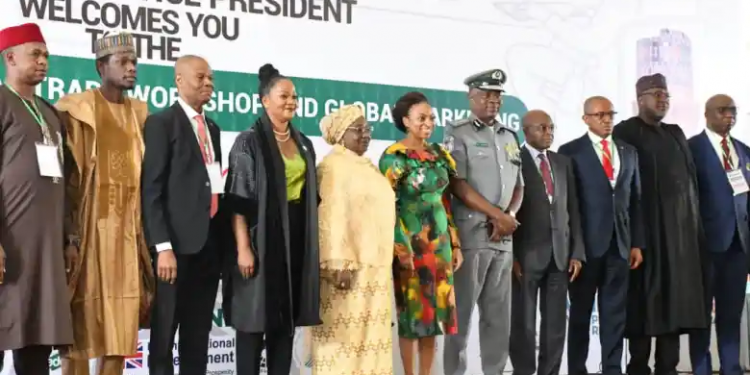The Nigerian government has set an ambitious target of creating 10 million jobs across Africa by the end of 2025 through the African Continental Free Trade Area (AfCFTA) Digital Trade Protocol. Vice President Kashim Shettima, represented by the Minister of Industry, Trade, and Investment, Dr. Jumoke Oduwole, made the announcement at the AfCFTA Digital Trade Workshop and Global Market event in Abuja. Nigeria’s role in this initiative stems from its recognition as Africa’s Digital Trade Champion. The workshop, themed “Unlocking State Exports Potential,” brought together federal and state officials, trade commissioners, and private sector experts to explore ways to expand digital trade.
Nigeria has positioned itself as Africa’s digital trade hub, with advancements in mobile payments driving financial inclusion and seamless cross-border transactions. The country’s leadership in digital trade was reinforced when President Bola Tinubu pledged in December 2024 to champion Africa’s digital trade agenda. This commitment was formally recognized at the 38th African Union Heads of State Summit. Shettima noted that the AfCFTA Digital Trade Protocol aims to increase intra-African trade from 18 percent in 2022 to 50 percent by 2030. With over 109 million internet users and a thriving mobile economy, Nigeria has the foundation to lead Africa’s digital commerce evolution.
The continent’s internet economy is projected to contribute 5.2 percent of Africa’s GDP this year, with its digital economy expected to grow from $115 billion in 2020 to $180 billion. Nigeria is driving this expansion through initiatives such as the National Talent Export Programme, launched in 2023 to promote Nigerian talent globally, the Outsource to Nigeria Initiative, supporting the country’s outsourcing industry, and the 3 Million Technical Talents (3MTT) Programme, fostering tech skills development. Nigeria has also modernized its passport application system and invested in port infrastructure to enhance trade efficiency, reducing customs delays and strengthening its role as a key West African trade hub.
Kaduna State Governor, represented by Deputy Governor Dr. Hadiza Balarabe, emphasized the need for African nations to embrace digital trade to remain competitive in the global economy. He said that with 65 percent of the population under 25, Nigeria has the demographic advantage to become a global digital powerhouse. He added that digital platforms are breaking down traditional trade barriers, allowing businesses of all sizes to access new markets. As Africa pushes for deeper regional integration, digital trade presents a transformative opportunity to drive economic growth, job creation, and innovation across the continent.










